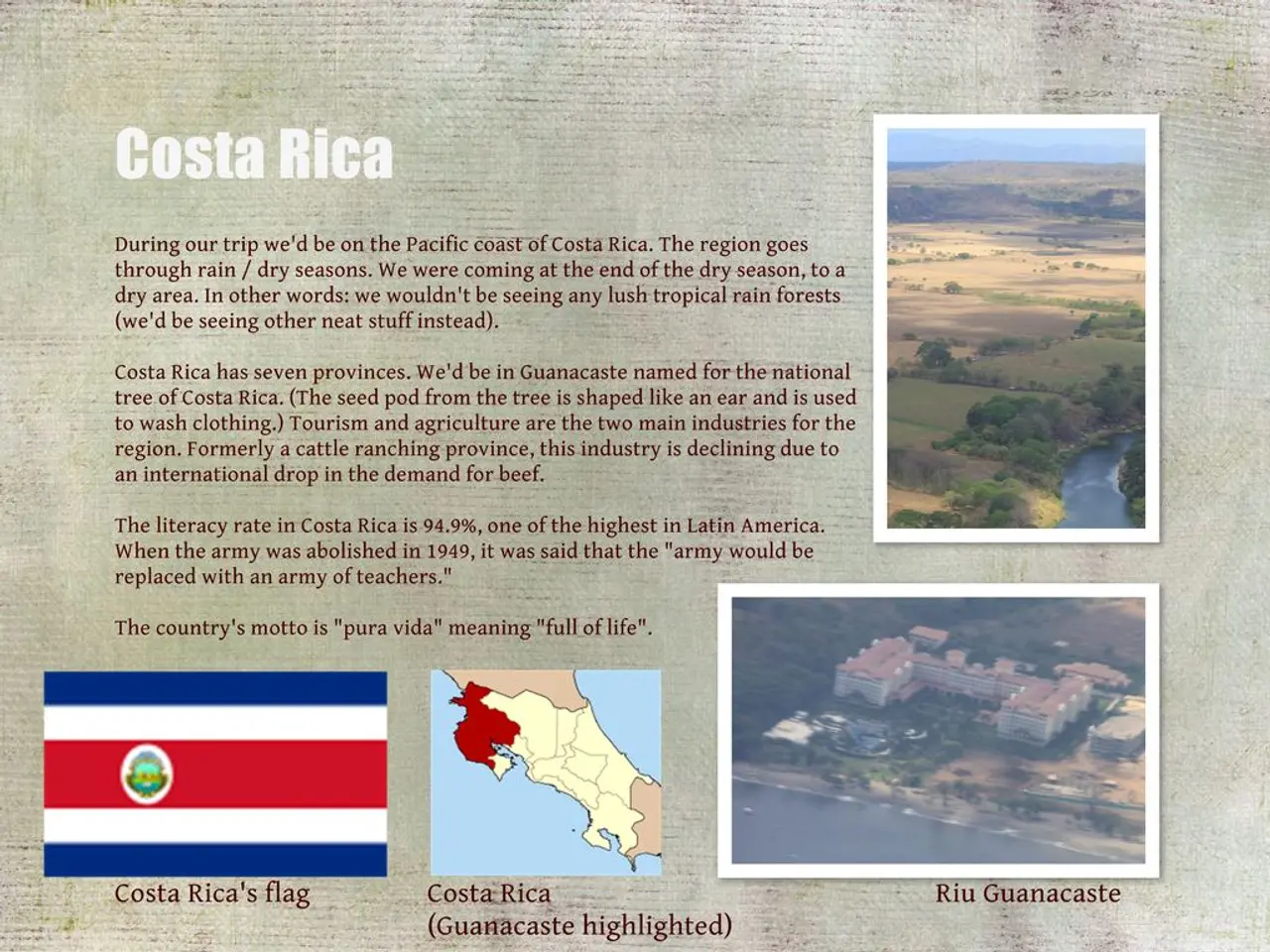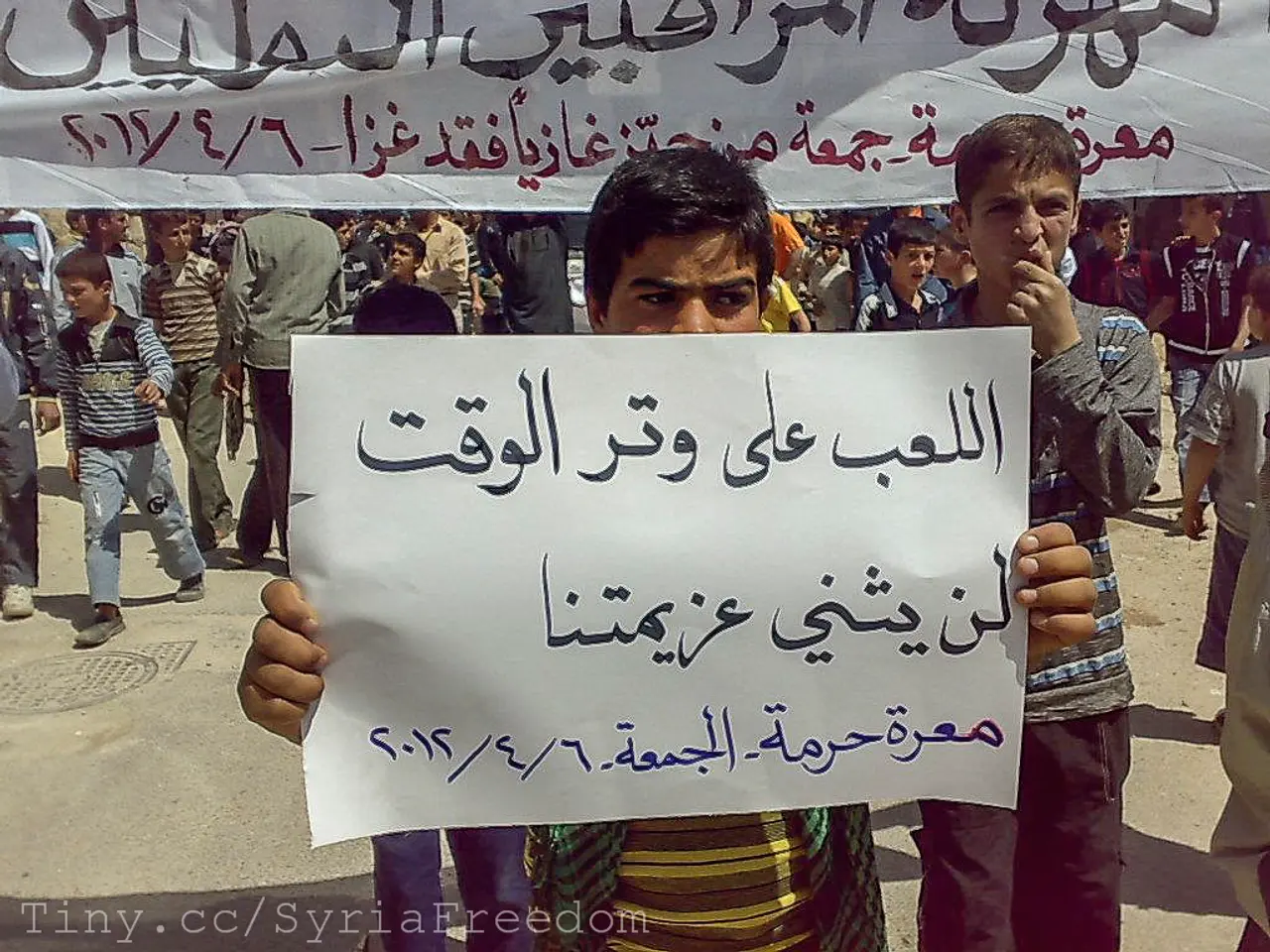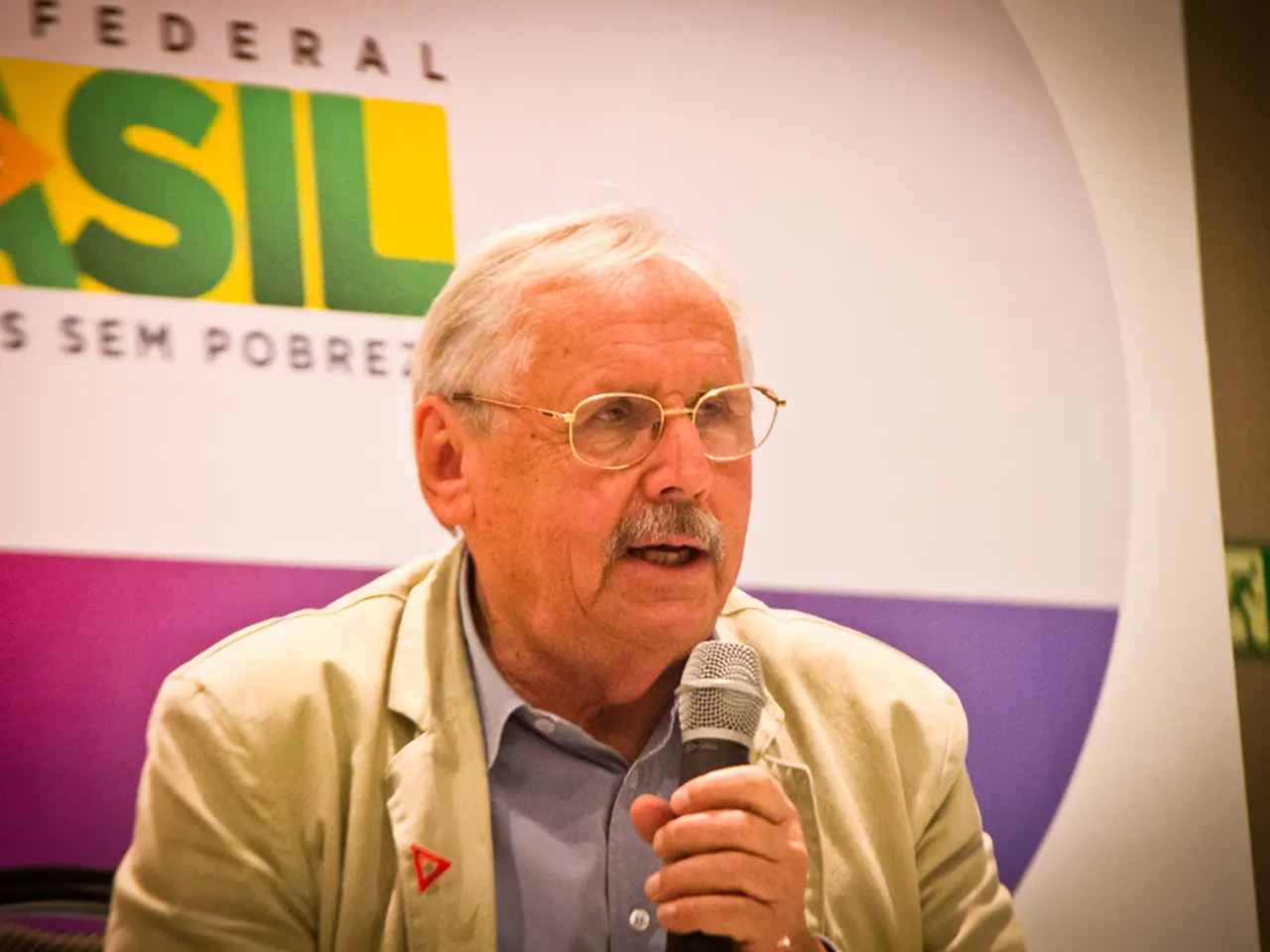Bukele's political alliance, aligned with Trump, modifies the constitution of El Salvador, permitting endless presidential re-elections
In a move that has sparked controversy and raised concerns about the future of democracy in El Salvador, President Nayib Bukele's New Ideas Party has successfully pushed through constitutional reforms that allow for indefinite presidential re-election.
The reforms, which were passed by New Ideas and their allies in the Legislative Assembly, were implemented in 2022 as part of Bukele's crackdown on crime. However, they have since been met with criticism from various quarters, including international human rights groups and opposition lawmakers.
The reforms abolish presidential term limits, extend the presidential term from five to six years, and eliminate the second round of voting (runoff election). This means President Bukele can now run for president as many times as he wishes, effectively enabling him to remain in power indefinitely.
Critics claim that the reforms undermine democracy by centralizing power around Bukele, restricting opposition, and raising alarms about repression and the weakening of democratic institutions. Human Rights Watch has reported that approximately 3,000 children have become victims of Bukele's crackdown on crime, which began in 2022.
The reforms coincide with controversial security policies under a declared state of emergency that allow mass arrests without warrants and curb civil liberties. Critics have highlighted a wave of arrests targeting human rights defenders, government critics, journalists, and activists, some of whom have fled into exile.
Nationalist Republican Alliance legislator Marcela Villatoro declared that "Democracy in El Salvador has died!" while other lawmakers expressed frustration with the bill. One lamented the death of democracy, stating that the reforms would lead to an accumulation of power, weakened democracy, and increased corruption and clientelism.
Bukele has become a polarizing figure in El Salvador, with critics worrying that he is trying to consolidate power. Last year, Bukele told Time magazine that he would not seek a third term, but he could change his tune following the constitutional reforms.
The changes to the constitution were implemented quickly by the legislative assembly, which is dominated by Bukele's party, with little debate. President Bukele defends the reform by noting that many developed countries permit indefinite re-election and rejects claims that the reform threatens democracy.
However, the reforms have caused concern among human rights groups, who have reported cases of arbitrary arrests and violations of due process. For instance, Human Rights Watch reported a case of a 17-year-old girl who was arrested without a warrant and forced to plead guilty to collaborating with the MS-13 gang, something she denied.
Bukele's tough-on-crime policies have caused homicides to plummet in El Salvador, but the cost of these policies remains a contentious issue. The reforms have raised questions about the future of democracy in El Salvador and the potential for authoritarianism or one-man rule.
References:
[1] Amnesty International. (2022). El Salvador: Constitutional reforms threaten human rights and democracy. [online] Available at: https://www.amnesty.org/en/latest/news/2022/02/el-salvador-constitutional-reforms-threaten-human-rights-and-democracy/
[2] Human Rights Watch. (2022). El Salvador: Constitutional Reforms Undermine Human Rights and Democracy. [online] Available at: https://www.hrw.org/news/2022/02/15/el-salvador-constitutional-reforms-undermine-human-rights-and-democracy
The constitutional reforms in El Salvador, which abolished presidential term limits and enabled indefinite re-election, have sparked debate within the media and general news, with critics arguing that these reforms undermine democracy by centralizing power around President Bukele, restricting opposition, and raising alarms about repression.
These reforms, accompanied by controversial security policies, have also been met with criticism from human rights groups, who have reported instances of arbitrary arrests, violations of due process, and ongoing concerns about the future of democracy in El Salvador.





